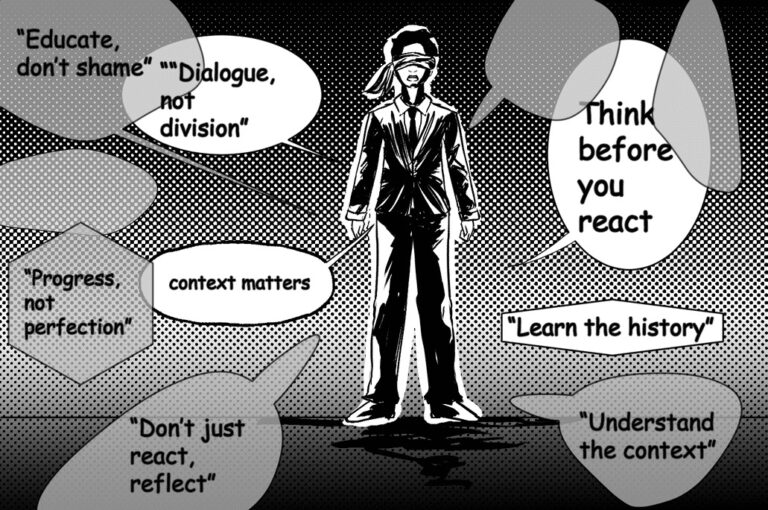Women and opulence in work
I recently read an interview of a woman M.P (l will not name her. I don’t want to get into party politics and draw attention away from sexism). When she was asked what challenges she faced as a woman in politics, she said that women shouldn’t be pushed into this victim mentality of ‘being oppressed’, that if they worked hard with confidence, they could do and be anything they wanted to be.
Significant words. But the words, ‘victim mentality’ didn’t sit well with me. Yes, there’s only so much society can do to protect the historically marginalised people. At the end of the day, people have to take charge of their destinies and put in the effort for the results they want. But I feel that putting too much blame on ‘victim mentality’ for the position that women find themselves in, unduly absolves certain people and structures of their role in maintaining and perpetuating entrenched discriminatory and unjust practices. While I could wax eloquent about principles of liberalism and feminism till the cows come home, I won’t. As the M.P has talked about her personal experience that shaped her values, let me talk about mine. And the readers can come to their conclusions.
Being born in a well-to-do family meant that I was afforded the privilege of not coming into contact with the ugliest parts of this world. I did not have to suffer groping in public transport. Rarely had I to face nasty comments made by men on the road. I never had to hear someone say “What’s the point of higher studies? Don’t you want to marry and have a family?”. I did experience sexism, but it was a very mild, milk toast variety that usually amounted to “Close your legs while sitting” or “long hair is proper for women”. So when I first came into contact with actual, unadulterated sexism, my first reaction was confusion and then the dawning realisation that this is how it has always been – I didn’t see it because I grew up in a privileged bubble that my family provided.
My first experience of outright sexism was when I was 24. I was at the inaugural session of the training period for my first job. It was a public sector bank. The Executive Director, a man, was addressing the recruits. He was telling us about the importance of a bank job, the difference we could make, the dedication expected of us, you know the whole, “the young are the future-passing the baton” spiel. Then he said, “And now we turn to the women officers.” And I became a bit confused for a moment. I thought to myself, “And now the women? What, he wasn’t talking to the women before? All the stuff he said about youth and passing the baton, that didn’t apply to us? Why does he feel the need to address us separately?” I was so struck by this…’ special mention’ that I don’t remember what he said afterwards. I missed the golden words that were meant just for the women.
If that had been the only discordant note in the one-week training session, I wouldn’t have paid much mind to it. I would’ve thought the Executive Director’s peculiar remarks were not because of sexism but because of some inability to articulate his thoughts properly. Maybe he meant to say “Now here’s something I want to say specifically to the women recruits” when he said, “And now for the women recruits”. Maybe. But what followed later in the week put paid to the optimistic thought the ED had only made a mistake of semantics and was not sexist.
In the training session, they weren’t just acquainting us with the rules and regulations involved with the job, they were also allowing us to listen to valuable ‘resource persons’. To be honest, some of these resource persons were exceptional, and I was thankful that the bank thought to invite them to talk to their recruits. But one person was a nightmare. He was some life coach. I had never heard of him until he gave that stupid lecture that day. His lecture was a weird mix of mindfulness, religion and good old-fashioned Hindu conservatism.
He said some nonsense like women are inherently different from men and it is wrong for us to compete with men for jobs. Women are not made for jobs according to him and we are ‘perverting the course of nature’ by trying to work and earn our own money. I have never met a man more tone-deaf than him, ever. No matter what his opinions are, common decency would dictate that he dial down his sexism while addressing recruits, a significant portion of them being women. But no, when over one-third of his audience were women, when, on the stage along with him, there was a woman officer of the executive rank, he still felt bold enough to spew his sexist nonsense.
When he started speaking in this way, I was waiting for the management to stop him, to whisk him away and continue the programme without him, to acknowledge in some way or another that the management disagreed with him. I was waiting in vain. Nothing of that sort happened. That man could finish his speech, they felicitated him for obliging the training institute and the following day, none of the management indicated that anything objectionable happened. There was no apology, no one even said anything along the lines, “Oh disregard him, he’s off his rocker”. I was prepared to ignore that. I thought maybe I was being too sensitive. Maybe the management didn’t apologise for that stupid life coach’s behaviour because it thought no one took him seriously. Maybe I dignified that stupid man’s speech by reacting too much to it.
But once the training was over and I joined the actual job, sexism had become part of my life and I became very thick-skinned. I stopped being surprised and outraged at every sexist incident that I either experienced personally or witnessed. Women officers in the branch were never given the same respect as male officers. When we told the customers that certain works couldn’t be done because they didn’t bring the right paperwork, they tended to argue or they tried to persuade us to finish the work without the correct documentation. But when the same thing was said by a male officer, the customers were much more compliant. They returned with the correct paperwork with very little or no argument.
To this day, I can’t be sure why the behaviour of one of my male colleagues was so weird towards me. Sometimes he was nice, other times he froze me out. I didn’t know what to make of it. For nearly two months though, he stopped talking to me completely. Normally, I wouldn’t have cared. But he was the best officer in the branch. Whenever I went to some senior officer regarding doubts about work, I was directed to this person again because he knew the rule book by heart. So there I was, the newest member in the branch and this person who was supposed to train me wasn’t talking to me. That branch was smack in the middle of a business neighbourhood – it was always overwhelmingly busy. Some customer would come to my desk with a complicated problem and I wouldn’t know what to do. I would go to the manager for help and he would direct me to this man who wasn’t talking to me. And I would go and ask for his help and he wouldn’t even acknowledge my presence – wouldn’t look at me, wouldn’t nod or give any indication that he was aware that I was standing there asking him something. I’d look like an utter fool in front of the customer. Then I would go to another senior officer and ask about the same doubt and they directed me to him again forcing me to say that he’s busy – I didn’t want to be branded as a ‘complainer’ in my very first job and my very first posting so I never told anyone how he was behaving with me.
But it was obvious to me that everyone knew what was happening. Because one of the other officers even said to me “you guys should start talking to each other, work can’t be done smoothly if two people won’t communicate with each other”. That suggestion was laughable really. “Talk to each other”? As if I was a willing participant in this stalemate. As if I had any power over him. As if my silence was causing the other man any problem. Everyone knew what was going on, no one said anything. They let it drag on that way. There were days when I used to go home and cry because I didn’t know how to work without any training and the man who was supposed to train me wasn’t willing to even acknowledge my presence. But I adapted. I talked to my brother who was working in the same bank but in another city and I talked to other recruits of my batch. I slowly gathered resources – training manuals, direct numbers for various department experts so that the employees can get technical advice about complicated issues. I stopped depending on him for training. Slowly, he came around. His behaviour became more normal. Though I was polite with him, I never asked his help, ever again.
When another recruit joined seven months later, another woman, he started treating her the same way. He was initially friendly, but he froze her out. One day I was entering a customer’s cheque into the system when I noticed the recruit trying to talk to him about some work she was doing. He didn’t look up from his work, didn’t show to her in any way that he heard her. I waited to see if he was just too focused on his work or if he was repeating the same ugly behaviour. When he didn’t respond after a second time she called his name, I turned to her to ask what the matter was. That jolted him into action. Maybe he was afraid that both of us would talk to each other about how he was behaving and then make a formal complaint. Or maybe he wasn’t used to his ugly behaviour being noticed by someone else. But after I asked her what the matter was, he quickly called her, asked her what the problem was and solved it.
The manager’s behaviour towards women was different too. He’d yell at the women officers in front of everyone – colleagues, customers, subordinates – for slight mistakes. I am not saying that women shouldn’t be reprimanded for shoddy work – they should be held accountable like everyone else. But when male colleagues are given a mild ‘talking to’ in the manager’s privacy’s office and us women are given harsh, loud public scoldings, there’s always a doubt if the punishment is deserved or if the manager is just mouthing off because we’re easy targets.
It was a highly sexist, toxic workplace. It was obvious that no matter how hard we women worked or how confident we were; they were always going to treat us as if we didn’t belong there. We couldn’t even complain. What could we say? It was our word against the men’s and the investigation would have boiled down to a torrid “he said-she said” drama. So we kept quiet. We did what we could do to stand up for ourselves and push back when our male colleagues, customers and the manager tried to dominate us too much. But we were always subtly (and not so subtly) reminded about what they thought ‘our place’ was – stray remarks about how Chanda kochhar ‘slept her way’ to the top, about how in their families women weren’t supposed to work outside the home and men helping mothers with domestic work was considered effeminate – typical ‘locker room’ conversations happened unabashedly in the presence of women colleagues.
So, no. I don’t for a minute believe that it’s all about hard work and confidence. I am glad and proud, as a fellow woman, that the M.P overcame many obstacles and reached a position that billions of women can only dream of or are even afraid to dream of. But her unwillingness to address or even acknowledge structures of inequality and exploitation is not becoming of her. She was brave enough to face and cross the hurdles to achieving success and acclaim. I wish she were brave enough to acknowledge entrenched patriarchal structures. Because a refusal to acknowledge is complicity, a refusal to bring those structures down. A refusal to make the path fairer for other women. But I am not angry with her. Standing up to a deep-rooted structure when you have already made it means you have a lot to lose. Also, it’s too much burden for just one person. I hope she realises that she’s not alone. That if she ever changes her mind, there will be others who will support her and give her strength.
I will close with the following remarks – women, please support each other. In your house, support your mother and sister and your female relatives. At work please support your woman colleagues, superiors and subordinates. Even if you don’t actively help them or support them, at least be kind to them. It’s highly difficult for women to stick together across multiple barriers – religion, caste, class, political beliefs and personal temperaments. So even if we can’t have some grand sisterhood, let’s at least be kind to each other. This is a man’s world sisters, but if we have each other’s backs, maybe we can survive with some semblance of peace even if we don’t flourish.
Image Credit: MsMagazine








